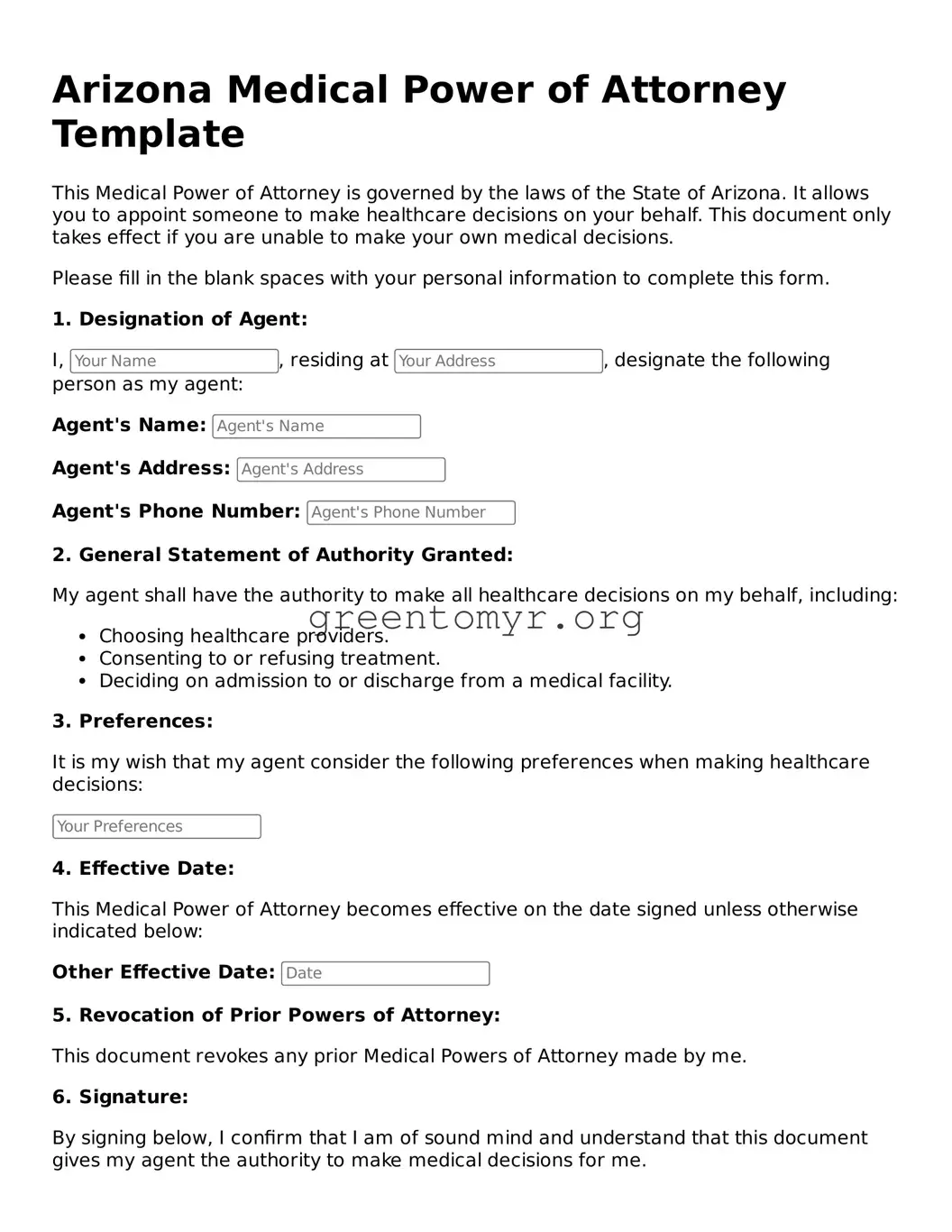Medical Power of Attorney Form for the State of Arizona
The Arizona Medical Power of Attorney form allows individuals to designate someone to make healthcare decisions on their behalf when they are unable to do so. This important document ensures that your medical preferences are honored, protecting your rights and wishes. If you’re ready to secure your healthcare choices, fill out the form by clicking the button below.
